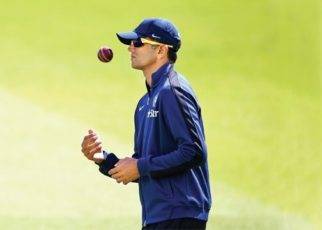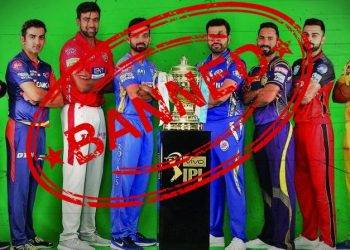The year 1996 was a crucial one for Indian cricket as India, the host nation, lost in the World Cup semi-final against Sri Lanka and thus made its exit from a tournament that the Indian fans craved for an Indian victory. Careers of several long-standing cricketers like Sanjay Manjrekar, Manoj Prabhakar, Vinod Kambli and Praveen Amre were coming to an end due to their non-performance.
At the same time, two important tours to England and South Africa were round the corner. The then-Indian selectors were forced to find suitable replacements and selected two of the best emerging talents in the country. They were Rahul Dravid and Sourav Ganguly/. Both justified their inclusion with a bang on their maiden tour to England as Sourav scored a hundred on his debut and Rahul Dravid made it to 93.
The Initial period from 1996-2000
After his debut in England, Rahul Dravid came to be noticed on the South African tour of 1996 as the hard and bouncy pitches suited his style of predominantly back foot play with hook and pull being his favourite shots. He played superbly against the fiery pace bowling of Allan Donald, Fannie De Villiers and Brian Macmillan and started gaining prominence with his savage pull and hook shots.
Against the Visiting Australian, Pakistani and South African teams, he stood like a rock and frustrated their bowlers with his ultra-defensive methods and long duration of stay at the crease. But by applying these same defensive methods both in one-day and test cricket, he gradually got branded as a defensive player and was sidelined for a brief period from one-day cricket. Being a shrewd player, he grabbed the opportunity of keeping the wickets, when he was offered that position by the skipper Sourav Ganguly and coach John Wright. So he was the Indian wicket keeper in both 1999 and 2003 World Cups and he distinguished himself in that role.
The Golden period
All cricketers will have a golden period in their career. The best period for Rahul Dravid started in a match against Australia at Kolkata in 2001, when India was forced to follow on with more than 400 runs in arrears. Glenn McGrath was breathing fire at that moment and the team had already lost the first four wickets and was staring at defeat. Then suddenly and from a defensive approach, both Rahul Dravid and V.V.S.Laxman shifted gears and started counter-attacking the Aussie bowlers. V.V.S.Laxman went on to score an epoch-making 281 and Rahul Dravid scored 162 runs.
Finally India not only took lead but also won the match due to the mesmerizing off-spin bowling of Harbhajan Singh. There was no looking back for him. He became more and more aggressive as he shed his defensive approach and scored runs quickly. Later on, when India toured Australia, in the first test at Adelaide he scored a double century in the first innings and followed it up with a match winning 73 in the second innings. And when India toured Pakistan in 2004, he was their main stay of the batting. In the second test when he was given the opportunity to lead the side with India leading the series, he ensured that the Indian team delivered the final blow to Pakistan with his shrewd captaincy.
Finally with Sourav Ganguly losing the favour of the selectors, he was made the skipper in 2005. Though he started off well in this position and netted comparisons with Aussie skipper Steve Waugh, he could not live up to the expectations. Key members like Virender Sehwag and V.V.S.Laxman and injuries to Sachin Tendulkar factored in to the disappointment.





